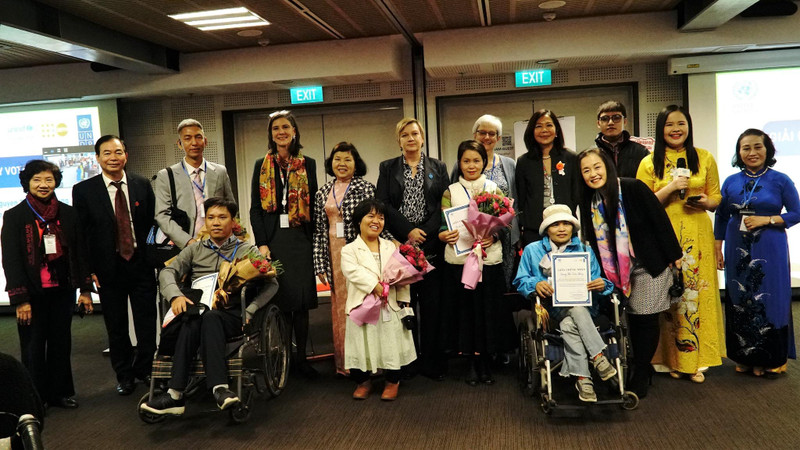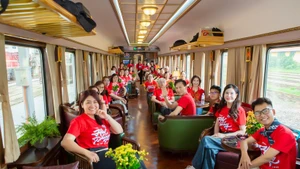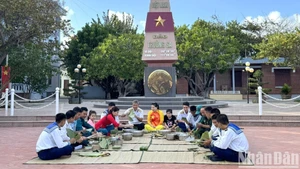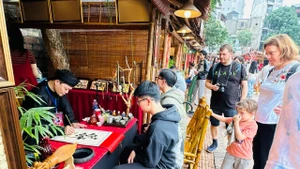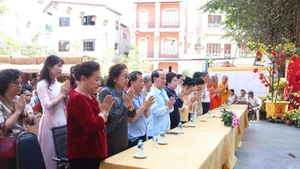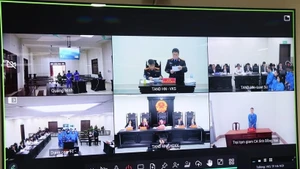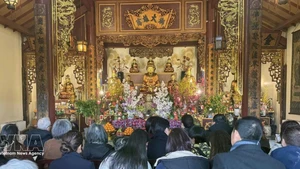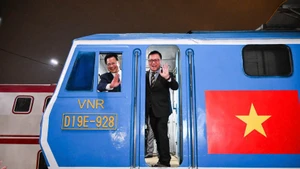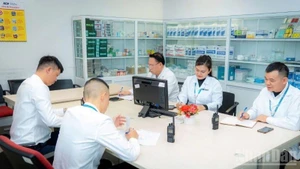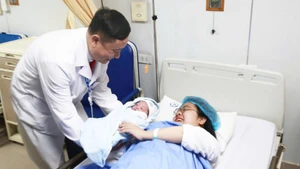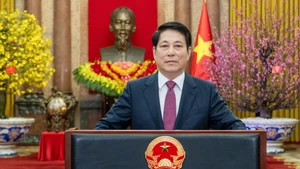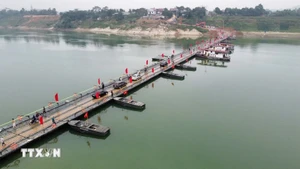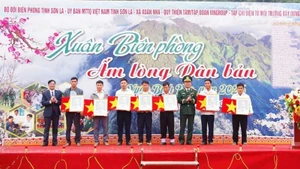According to statistics, Vietnam now has around 7 million people with disabilities, making up more than 7% of the country's population, aged from two years old. About 10% of the total are from poor households.
Vietnam is also one of the countries in the Asia-Pacific region with a relatively high proportion of people with disabilities in its total population. Most people with disabilities in Vietnam live in difficult circumstances in rural areas, especially those affected by Agent Orange/Dioxin.
Over the past years, the Vietnamese Party, State and society have always given special attention and care to people with disabilities, which is reflected in the Constitution, Law on Persons with Disabilities and relevant laws.
In 2014, Vietnam ratified the United Nations Convention on the Rights of Persons with Disabilities. In 2019, the country ratified the International Labour Organization's (ILO) Convention 159, on Vocational Rehabilitation and Employment for Disabled Persons, to further reaffirm its commitment to ensuring workers with disabilities are not discriminated against, in terms of employment.
A programme to support people with disabilities during the 2021-2030 period was also issued by the Prime Minister, along with a plan to realise the Convention on the Rights of Persons with Disabilities.
In addition, the Party Central Committee’s Secretariat issued a directive on strengthening the Party leadership over people with disabilities’ affairs, asking functional ministries, sectors, and People’s Committees, to work out more programmes and plans to care for people with disabilities.
To date, the number of people with disabilities, who have access to policies and programmes of the State and the community is increasing. Accordingly, more than 1.1 million people receive monthly social allowances, and 100% of people with severe and extremely severe disabilities, are granted free health insurance cards.
Regarding vocational training and job creation, an average of 17,000 to 20,000 people with disabilities received vocational training every year during the 2012-2022 period.
Currently, there are 63 employment service centres nationwide, with each of them providing job training and job placement for about 20,000 people with disabilities each year.
It is also heartening that the awareness of the whole society and people with disabilities themselves, about disability inclusion, has significantly improved in recent years. The approach to disability has gradually shifted from a charity to a social model, based on the rights of people with disabilities.
The entire society has joined hands to remove barriers facing people with disabilities, and people with disabilities themselves have exerted efforts to set aside their complex feelings of inferiority, to overcome prejudices and discrimination, which still existed somewhere in the community, to integrate into society.
These are important factors for building an inclusive and “barrier-free” society, which can ensure the full and equal participation of people with disabilities, in all areas of society.
